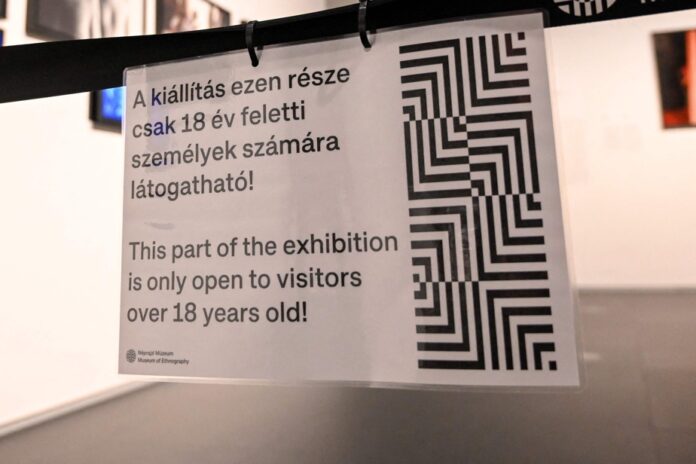(Budapest) After the World Press Photo episode, it is the turn of the Budapest Museum of Ethnography to prohibit minors from accessing photographs representing homosexual people, against a backdrop of tougher anti-LGBT measures in Hungary.
“This part of the exhibition is only open to visitors over 18 years old,” can be read in Hungarian and English on a sign hanging from a dividing cord, an AFP photographer noted on Tuesday. is seen asking his age by an employee.
These are a few photos from a series on the Yanomami indigenous people of Brazil taken in 1967 by the Brazilian photographer of Hungarian origin, Claudia Andujar. Scheduled until June 2024, the event opened in mid-September without restrictions.
Contacted by AFP, neither the museum management nor the government reacted immediately.
The cabinet of nationalist Prime Minister Viktor Orban adopted a law in 2021 prohibiting any mention of homosexuality to minors in public, under penalty of financial sanctions.
It caused an outcry within the European Union, of which Hungary is a member, and is currently the subject of an infringement procedure from Brussels.
If simple romantic comedies were banned from prime time like X-rated films, the legislation was initially poorly enforced. But a hardening has been observed in recent months in this Central European country of 9.7 million inhabitants.
Minors were thus banned from a recent exhibition at the National Museum of Hungary featuring works awarded by World Press Photo, which each year rewards “the best visual journalism” in the world.
In practice, however, the establishment said it was unable to implement this ban, saying it could not control identity documents and relying on the “cooperation” of visitors.
What displeases the government: its director Laszlo Simon was dismissed on November 6 for having “failed” in his duty to apply the law.
Bookstores were also affected. The Lira store chain was fined last summer for selling the graphic novel Heartstopper, which tells the story of a budding love between two high school students, without packaging.
The government has denied wanting to censor works. “Only content specifically promoting homosexuality is targeted,” Gergely Gulyas, Viktor Orban’s chief of staff, said last week.
But for Luca Dudits, of the NGO Hatter, the very vague content of the law has “a deterrent effect” and leads to “pure and simple censorship, with the aim of erasing LGBT people from the public square”.
In this context, “it is increasingly rare to see positive or even neutral portraits of the community in the media,” she laments.





